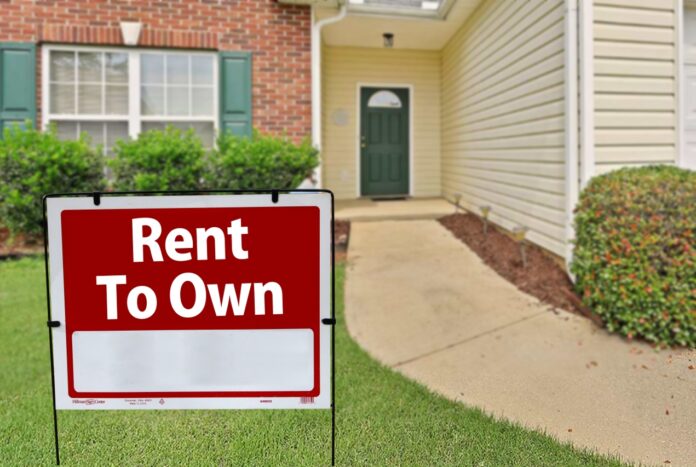
Sometimes, even if you tried as hard as you could, things don’t go as planned. It’s called life. So, there might come a time when you’re in need of certain things and can’t get to them. This is life too. Low credit score, credit debt, and similar issues could prove to be an obstacle for you to get a mortgage loan for a house. Having a home to come to is a dream for many, and you don’t want to have anything on your way to attaining it. It is a part of the American Dream that people dream too all over the globe. So, what to do when you’re in a pinch, and the situation doesn’t look too bright? Don’t worry; there is a solution. You can always make a rent-to-own agreement. This contract allows you to start living in the house straight away, on rent, with an option to buy in the future. If this is not an option you haven’t considered before, now might be the right time.
Of course, this sounds like a fantastic opportunity, and for the most part of it, it is. But, this doesn’t mean you don’t have to be careful. It means you need to be extra cautious. not everything that shines is gold. Laws and legislation differ in many states, and sometimes you won’t be too protected when you enter this program. There were cases when people lost everything they invested once they were unable to continue with payments. There are many things you need to research before you decide this is your course. We are here to give you the directions in which to focus to get the best possible idea of what you should learn. Let’s take a look at x things you should know about rent-to-own homes.
1. The Relation Between Monthly Rent And Selling Price

If you sign this agreement with the house owner, your monthly rate will probably be a bit higher than what the market dictates. This happens for a reason. As you pay additional cash, the eventual price of the home is going to be lower. The final price needs to be known and set for both parties involved.
This contract usually states that the property can change hands in the period, which is at first set between one and five years. The option remains on you to make a bid or not. The price is what remains from the arranged one when you deduct what you paid over in monthly rent. What you need to know is, while this remains a practice for many people who deal with rent-to-own, not all owners deal with this the same way. There are those who do not accept any money in advance, and there’s no deduction to the initial price.
While buying the house is the final goal, you might be better sticking with the latter option as you won’t waste any money in case you never get enough funds or a mortgage loan to finance your own house. This way, you’ll be paying only rent for the place you live in, and if you buy it, you buy it, but if not, there’s no money lost. Whatever you do, you always need to have on paper the final price of the home and the cost of the rent. Many people entered this program without a chance of attaining a mortgage, and they ended up losing all money they invested in advance over the cost of the rent. This is why it’s vital to research as much as you can about this process. We advise you to learn more on the subject. Trust us, educating yourself on topics like these can only reap benefits for you.
2. The Timeline

With this contract, it all starts when both the owner and the tenant sign a contract that clearly states how much is the rent and how much is the final price of the property. Of course, the choice of the house comes into question after the agreed period of renting ends. It would be best if you also had in writing how long is the period of renting. This is quite vital as after this period, in most cases, you are obligated to buy the house, or you lose the right to do so. Furthermore, in addition to how much is your rent going to cost, you’ll want to know how much is going to the cost of the house, thus lowering the final price of the property.
You should never go into this process if you don’t know these facts. It is essential to be aware of your possibilities and financial prowess if you want a closure that suits you. In the end, you’ll want to make the final buying price the lowest you can.
3. Where Does The Extra Money Goes When You Fail to Buy?

Brace yourself; the bad news is incoming. Unfortunately, in most cases, nothing good happens with this money, at least from the tenants’ point of view. Rent-to-own is a limited period, and in most cases, when it ends, and you don’t buy the house. All of the extra money you invested in purchasing the property goes to waste. As we said, the owners will make sure that the contract clearly states that if there’s no buyout, the money tenants overpaid will be lost for them. Passing on the purchase of a home, regardless of the reasons involved, is never favoring the tenant.
This is what makes renting to own a tricky venture. After years of living in the house and making a payment towards buying, it could turn out that you’re the one who doesn’t want to buy. The neighborhood can change, or you want to move because of a new job, and you’ll want to leave the place. Either way, the money is staying with the owner. Nobody has money to throw it away, and because of this, you need to watch out for this type of agreement.











